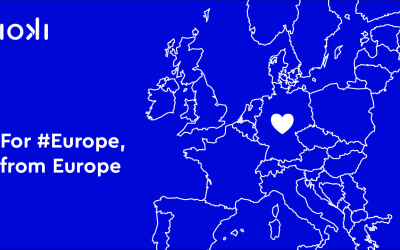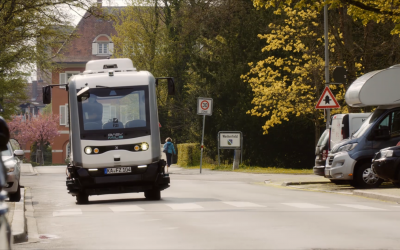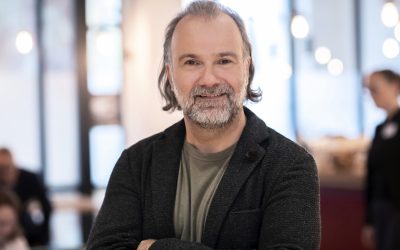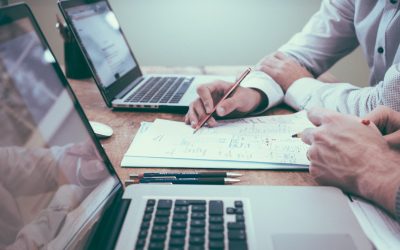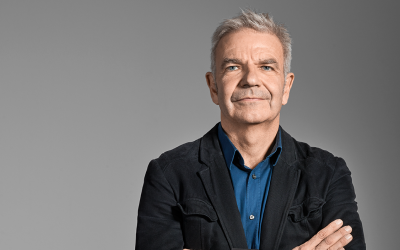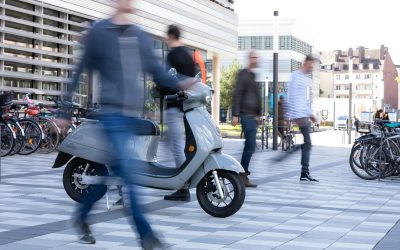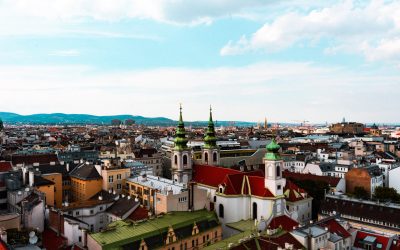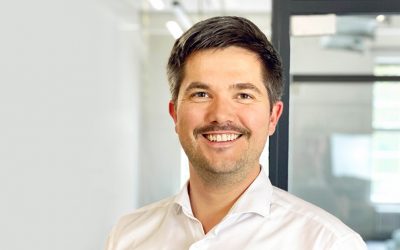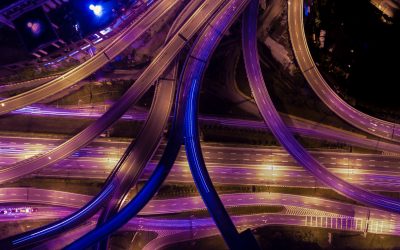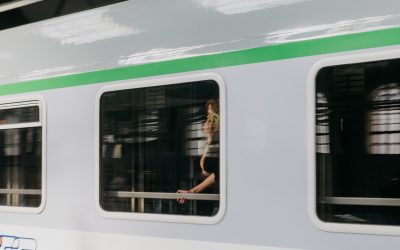The mobility transformation in Europe must be driven forward through modern, digital and inner-European platform solutions in order to create a real added mobility value. This added value can only be created through the development of holistic software solutions that enable public authorities and (transport) companies to integrate new forms of mobility across different modes of transport.
All aboard, please! Next stop: autonomous driving
ioki has already achieved a number of milestones in the field of autonomous driving, from test operations on closed terrain to linking an On-Demand-Booking-System with autonomous driving vehicles. In March 2021, the «Law on Autonomous Driving» was presented in the Bundestag, which clearly shows: The topic is gaining more weight not only among mobility designers, but also at the political level. In the bill presented, legal framework conditions were defined for fully automated driving in certain operating areas. In addition, further investments are to be made in research and development in the field to make the mobility of the future safer, more environmentally friendly and, above all, user centered. «Germany will be the first country in the world to bring autonomous vehicles out of the research labs and onto the road,» says Federal Minister Andreas Scheuer – ioki has already been working on this for several years and shows itself to be an innovator making progress here.
Perspectives from Jörg Starr
Jörg Starr has already passed through several stations in the automotive industry. He has already worked as a manager at Smart and Daimler. Today, the hydrogen mobility expert works for Audi. In addition, Jörg Starr is chairman of the Clean Energy Partnership (CEP). Technology, mineral oil and energy companies, gas producers and car manufacturers are working together to establish emission-free mobility with hydrogen and fuel cells across the board.
Why transport planning must be agile
Mobility is a highly complex construct, consisting a wide variety of puzzle pieces and dependent on diverse influencing variables. Since the beginning of professional planning of publicly oriented mobility services, public transport authorities and transport companies have been confronted with a multitude of questions and possible answers.
Why transport planning must be agile
Mobility is a highly complex construct, consisting a wide variety of puzzle pieces and dependent on diverse influencing variables. Since the beginning of professional planning of publicly oriented mobility services, public transport authorities and transport companies have been confronted with a multitude of questions and possible answers.
Car-free city: meaningful reform or wishful thinking?
Looking at our society from a above perspective without any prior knowledge, it seems as if the idea of a planet with endless resources has strongly manifested itself in the minds of people. A prime example of this way of thinking is the current use of motorised individual transport. If I want to drive, I have a seat in my car, fill up the tank, fasten my seat belt, press the accelerator and drive off. This way of thinking is dangerous. Motorised individual transport requires that resources are consumed – for a car that weighs 1.5 tonnes on average, that means about 70 tonnes of material only in production. In addition, the car pollutes the environment with every use and takes up too much space, especially in large cities.
Perspectives from Prof. Peter Eckart
Prof. Peter Eckart studied product design at the Bergische Universität GHS Wuppertal and later at the Hochschule für bildende Künste Hamburg. In 2000, he founded the design studio unit-design, Frankfurt, Bern, together with Bernd Hilpert, with whom he also works for the Deutsche Bahn. Since 2000 Peter Eckart has been Professor of Integrative Design at the HfG Offenbach and since 2011 Vice President of the University. His central research field is mobility design. Since 2018, he has been leading the interdisciplinary LOEWE research project with Prof. Dr. Kai Vöckler in the fields of urban and transport planning, social science mobility research, multimedia technologies and the design entitled project-mo.de, which focuses on the role of design in changing mobility behaviour.
Green Fleet
Fleet management follows social and economic trends: New forms of work, digitization and the shift in values towards a greater understanding of sustainability are having an impact on the design of company-organized mobility. But what does this constant change in mobility structures mean for companies and where are the opportunities?
The Vienna Model
Vienna’s public transport system is among the best in the world. The network is dense and the frequency is tight. It is so well developed that you don’t even need to know the timetable. A total of 2.61 million people are transported from A to B by public transport here every day. The popularity can also be seen in the modal split, because: The public transport users have overtaken the car drivers. Around 38 percent of the distances are covered by public transport, while «only» 27 percent are covered by car. But what makes vienna different from other cities?
Perspectives from Jakob Muus
Jakob Muus is the founder and CEO of Tracks, a Berlin-based tech company with the goal of making road freight transport more efficient and sustainable through modern technologies. The platform developed by Tracks provides its users with analyses and recommendations for action, with which they can reduce the fuel consumption and CO2 emissions of their fleet. This not only improves the environmental balance but also the competitiveness of participating companies.
Mobility in the city
An ever increasing urbanization of our society is clearly visible. Young people in particular are increasingly moving their centre of life from rural regions to the cities. In addition, there are many commuters who do not want to live directly in the urban jungle, but who find well-paid jobs mainly in the cities. This congestion in the cities and the associated additional traffic flows have consequences – especially for our increasingly grey planet. But what challenges must urban public transport face in times of the mobility change? And what role will it itself play in this?
What’s green? The Deutsche Bahn
Whether in the city or in rural areas, everyone agrees on one thing: to protect our planet, we all need to become greener again. Not only in the household many people are making an effort to consume wisely and are once again considering whether they should use plastic bags or eat meat every day. There is also a rethink on mobility issues. Especially for Generation Z, travelling by plane is no longer «state of the art». Last year, the DB recorded 150.7 million customer trips which also shows that many people care about their green footprint.
Newest article
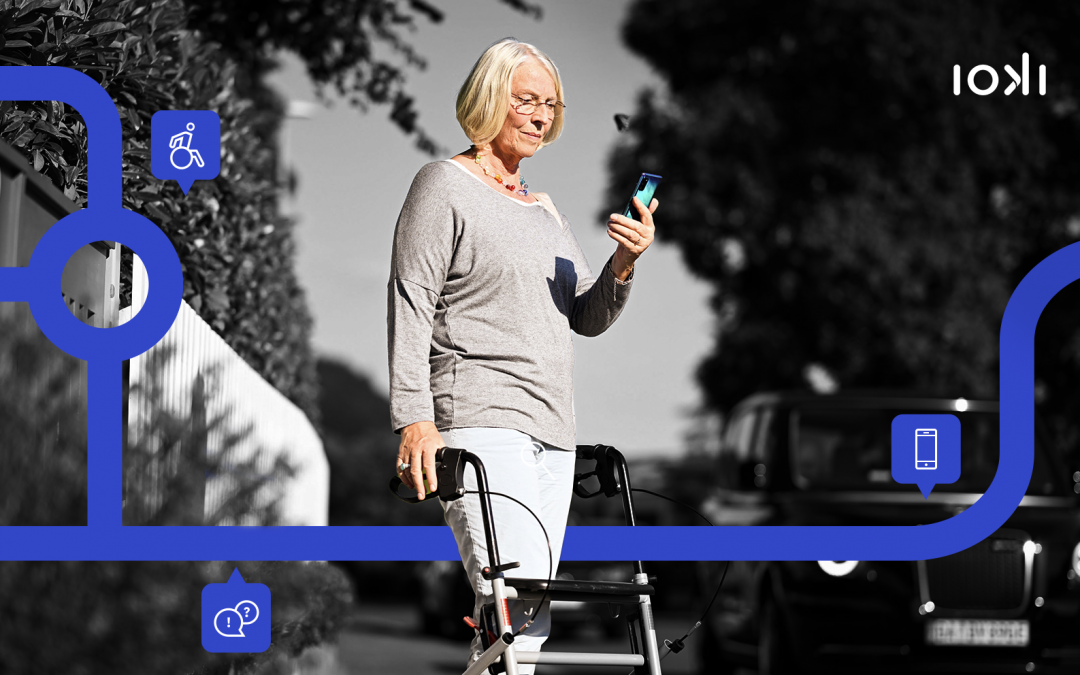
Transporte público adaptado a las personas mayores: ¿Cómo debe ser un transporte público adaptado a la edad?
La población europea envejece. En 2019, más de una quinta parte (20,3%) de la población de la UE-27 tenía al menos 65 años. Y la tendencia sigue en aumento. El cambio demográfico es un reto para el transporte público, pero también puede ser una oportunidad de crecimiento con una oferta de movilidad personalizada para las personas de mayor edad. Al fin y al cabo, si las personas de mayor edad ya no conducen, dependen cada vez más del transporte público para seguir participando activamente en la vida social.

